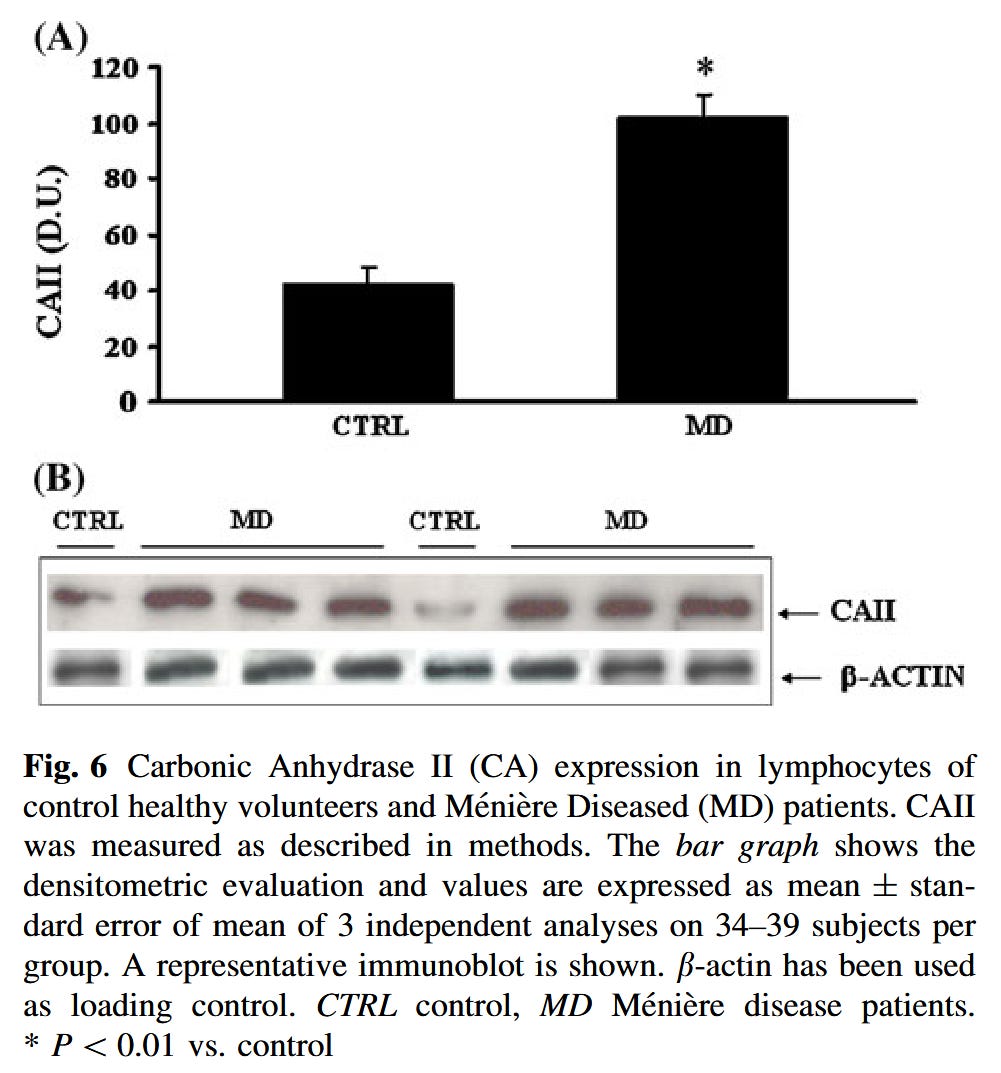How to Cure Ménière's Disease
'The plural of anecdote is data' —George Stigler, Nobel Prize in Economics
In this case, one anecdote provides a vast trove of information.
Why might carnivore improve Ménière’s disease? Well, carnivore is probably the best treatment for oxidative stress.
Ménière’s disease, like many "modern" chronic diseases, is typified by an excess of oxidative stress.
Measuring via 4-HNE, a toxic metabolite of linoleic acid.
"Oxidative stress, redox homeostasis and cellular stress response in Ménière's disease..."
Another symptom of this disease is increased carbonic anhydrase:
Which I discussed in this post on topiramate:
"[Topiramate] works by inhibiting an ancient part of the mitochondria, carbonic anhydrase."
It thus offered protection against a high-linoleic acid diet.
It turns out that topiramate has been tested in Ménière’s disease, and in a related condition with similar symptoms.
"The two patients fulfilled all AAOHNS criteria for definite MD. In both cases, preventive therapy of MD with betahistine 24 mg twice a day, salt restriction and increased water intake did not prevent vertigo attacks, which remained unchanged in frequency and duration in a 6-month followup. On the other hand, drug prophylaxis of migraine with topiramate 100 mg a day and disaggregants (acetylsalicylic acid 100 mg a day) produced a clear decrease in vertigo attacks, in both patients, in a 1-year follow-up, since patient 1 did not report any episodes of vertigo and patient 2 reported only one mild episode of about 10 min. Patient 1 also reported a reduction in migraine attacks since she reported only one mild episode. Dietary changes, to reduce the triggers for migraine (above all caffeine, chocolate and red wine), were suggested to both patients."
And here:
"Regarding auditory symptoms, all the patients referred that they were stabilized. The effect began quickly, from the first month in most patients as it has been reported in other studies."
"Use of Topiramate (Topamax) in a Subgroup of Migraine-Vertigo Patients with Auditory Symptoms"
Mechanisms matter.
It seems that a low-linoleic diet would be a better treatment than the recommendation above: “Dietary changes, to reduce the triggers for migraine (above all caffeine, chocolate and red wine), were suggested to both patients."
As found in this RCT testing a low-linoleic diet for migraine.
“[The diets] produced large, robust reductions in frequency and severity of headaches relative to the control diet.”
One might also wonder why an untreatable condition, atrial fibrillation (Afib), also improved.








